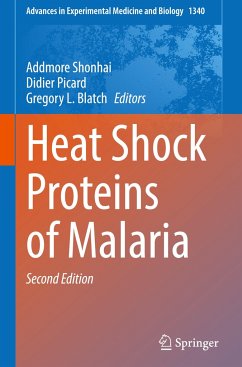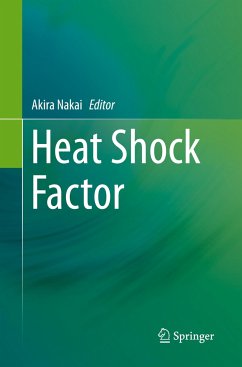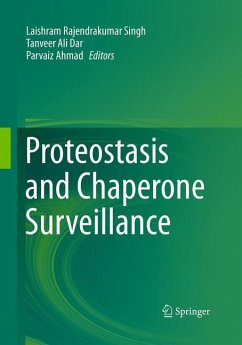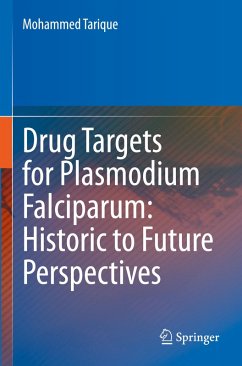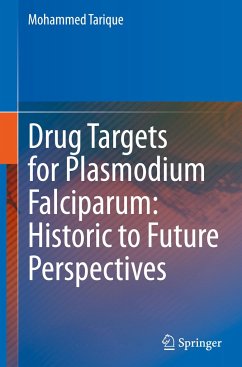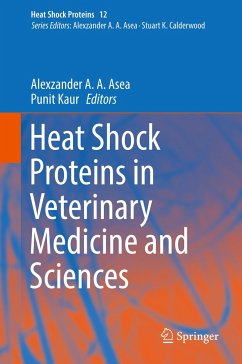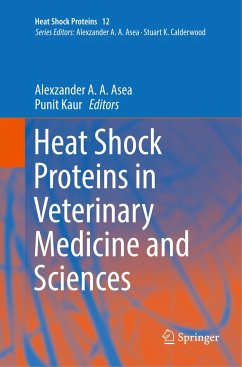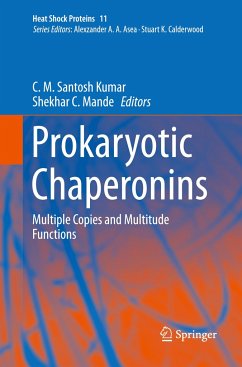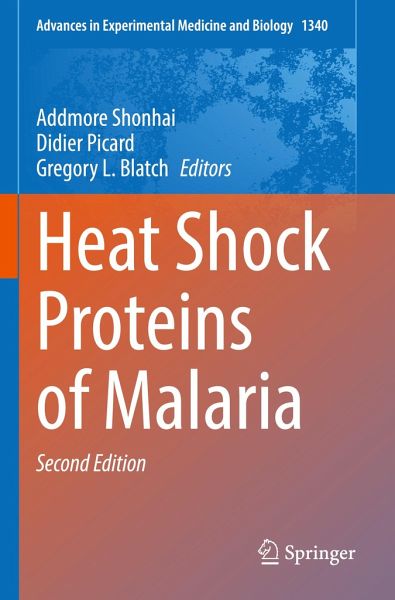
Heat Shock Proteins of Malaria
Versandkostenfrei!
Versandfertig in 6-10 Tagen
129,99 €
inkl. MwSt.

PAYBACK Punkte
65 °P sammeln!
This new edition describes the role of heat shock proteins in the life cycle of malaria parasites, particularly in the context of intracellular parasite stages. Thoroughly revised, this work provides a general introduction to the structural and functional features of heat shock proteins with a special focus on their role as molecular chaperones in ensuring protein quality control. The emphasis is on the heat shock protein families from Plasmodium falciparum, and their role in proteostasis and the development of malaria pathology. Moreover, the authors explore the latest prospects of targeting ...
This new edition describes the role of heat shock proteins in the life cycle of malaria parasites, particularly in the context of intracellular parasite stages. Thoroughly revised, this work provides a general introduction to the structural and functional features of heat shock proteins with a special focus on their role as molecular chaperones in ensuring protein quality control. The emphasis is on the heat shock protein families from Plasmodium falciparum, and their role in proteostasis and the development of malaria pathology. Moreover, the authors explore the latest prospects of targeting heat shock proteins in antimalarial drug discovery either directly or in combination therapies.
Readers will experience a functional analysis of the individual families of heat shock proteins and their cooperation in functional networks, including both the parasite-resident proteome and the exportome released into host cells during intracellular stages. Subcellular and extracellular organelles such as the apicoplast and the Maurer's Clefts associated with Plasmodium species are discussed in detail. The book highlights the role of heat shock proteins in the development and function of these structures.
Biochemical expertise and the inclusion of novel therapeutic solutions make this collection a unique reference for experts in heat shock protein research, parasitology and infectious diseases, cell stress, molecular biology and drug discovery. Not least, advances in malaria control will contribute to ending epidemics and ensuring healthy lives in line with the UN Sustainable Development Goals.
Readers will experience a functional analysis of the individual families of heat shock proteins and their cooperation in functional networks, including both the parasite-resident proteome and the exportome released into host cells during intracellular stages. Subcellular and extracellular organelles such as the apicoplast and the Maurer's Clefts associated with Plasmodium species are discussed in detail. The book highlights the role of heat shock proteins in the development and function of these structures.
Biochemical expertise and the inclusion of novel therapeutic solutions make this collection a unique reference for experts in heat shock protein research, parasitology and infectious diseases, cell stress, molecular biology and drug discovery. Not least, advances in malaria control will contribute to ending epidemics and ensuring healthy lives in line with the UN Sustainable Development Goals.





